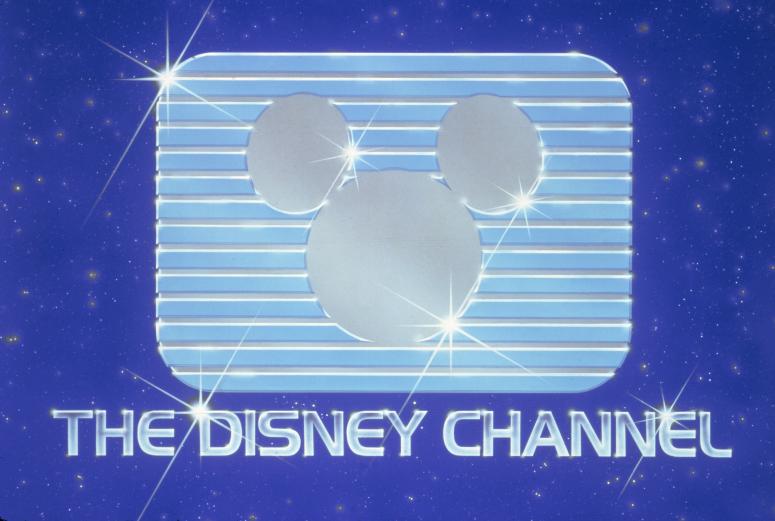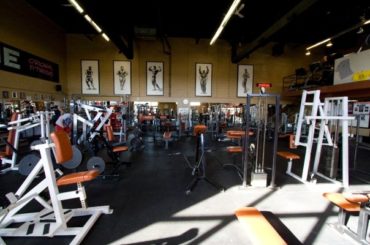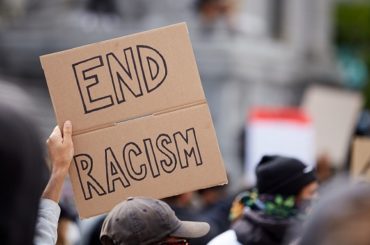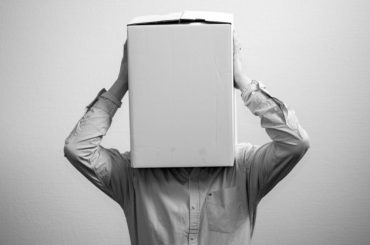If you read my blog it should come as little surprise to learn that I have spent a lot of time studying Disney. The company is one of the biggest players in the entertainment world and the company is often at the fore-front of revolutions in the business. I admit that there are also parts of Walt Disney the man’s personal story which I find eerily mirror my own. For example when I learned the tale of how Charles Mintz tried to steal away everything that Walt Disney had built with his animation studio and later declared he would never work for someone else again and needed to always be his own boss, I found myself identifying completely with that sentiment as it mirrors my own unfortunate experiences in this business….
Yet even before I knew about Walt Disney the man, I knew him through the creations of his studio. Like most American children of my generation some of my fondest memories of watching television as a kid involve the works of the Disney company, but my parents did not have cable television. It wouldn’t be until they divorced when I was around 6 that I would start living with my grandparents, who picked up the Disney channel for my brother and I to watch it. Prior to this my introduction to Disney media came from VHS cassettes my mother rented from local video stores and then recorded on our VCR, which she had purchased from the company store (my mother worked for GTE). She taught me to use the VCR and I spent a lot of time re-watching from our collection of bootleg tapes.

My favorite Disney related tapes were not the full features films however, although I watched these, too. My favorites were the theatrical shorts that had been produced from the late 1920s to 1960s. In addition to the character serials like Mickey, Goofy and Donald, I devoured many hours of watching Silly Symphony shorts, too.
A children’s perception of time can be widely inaccurate. I didn’t fully realize that Walt Disney had made these shorts back in the 30s to 40s, or even the 60s. I should have, really, because looking back the VHS tapes had intros that explained this to me though the greater meaning of this I guess had been lost upon me. I watched these stories hundreds of times. But it was still largely lost on me that these shows were “old” because they were so new to me and the quality was much better than a lot of the animation I watched on Saturday morning television segments. Even at that young of age, I could see they were better produced than many of the other cartoons I watched on television. Aside from The Real Ghostbusters, Muppet Babies and He-Man, Disney animated programming was all I watched and I tuned out most other children’s programming and would play with my toys while waiting for the three cartoons I actually liked to air on Saturday mornings.
Even when my parents were still together, I had some exposure to the early Disney channel programming. Premium cable channels sometimes did promotions where they would broadcast a special airing as a freebie, trying to entice more subscribers. So stitched between airings of some Disney Channel programming there would be segments with Howie Mandel trying to convince viewers to subscribe to the Disney channel during one of these “free” promotions. My mother actually recorded like a tape with 6 hours of Disney channel programming during one of these promos for me, and I would watch it several times before I moved in with my grandparents after my parents divorced.
I still own that tape, and the others, too.
I used to watch The Disney Channel more than any other TV channel other than Fox (for its Super Mario Bros Super Show & Disney Afternoon segments) and Nickelodeon, once I started living with my grandparents who had cable TV. I loved watching the live action Winnie the Pooh, Dumbo, and of course the theatrical shorts. I also liked the documentary content programming that often aired in the middle of the day, around noon. I feel very fortunate that I got to watch re-runs of Walt Disney Presents during the early development years, I think it had a positive impact on my love of learning moreso than things like Sesame Street, which I feel talks down to children and is too preachy to reach kids who were like myself.
But once the Disney Channel switched from being a premium channel with no ads in 1997, to a basic cable channel with advertising, the channel changed to be unrecognizable. The format changes largely focused on cheaply produced sitcoms with very little to do with Disney in my opinion, aside from some animated Little Mermaid and Aladdin series cartoons they would make later on. Perhaps you could say I was getting too old for the Disney Channel but my opinion is that most of the best Disney content is timeless and appeals to people of all ages. I don’t think “growing up” is the problem, and as the parks demonstrate by all of the adults who love the same kinds of classic Disney stories and are crazy about Disney stories, I don’t think I am alone in this belief.
Compare this to most of the programming on the Disney Channel that has been special made for it. You don’t really see a lot of people still fans of Hannah Montanna and whatnot anymore, do you? These brands do get outgrown. So these shows don’t stand the test of time.
I stopped watching the channel after it went to basic cable due to the format shift. You might think I simply grew out of the programming, but I still continued to watch children’s programming on other channels. I just was greatly disinterested in watching what the Disney channel replaced my favorite programs with. I recall reading an article in some magazine about the new president of the channel and how she was going to make even more of these sitcoms, and it turned me off the channel completely, even then as a kid.
I’ve thought at length on why I have such a strong emotional reaction to the degradation of the channel into cheaply made sitcoms — I mean after all, who was I to tell Disney what to do with their TV network? But I think my issue is that even at a young age I came to realize the messages in these programs were an important part of modern American culture and that it is problematic for generations of kids to grow up without these tales to nurture their minds. The frank truth is a character like Spongebob Squarepants, while generally good natured, is just an immature idiot who things happen to. By contrast Mickey Mouse is a role model whose stories largely revolve around overcoming adversity, and there is great value in kids emulating him. Even Donald Duck is educational, as his stories are entertaining lessons in why you should not give in to your anger.
The Disney Channel is also a severely disjointed piece of the Disney empire from my perspective. If you look at the IP developed on the Disney Channel after it went to basic cable the vast majority of it has little synergy with the rest of Disney’s hydra heads. Most importantly if you go to the parks you don’t see any merchandise for any of the TV shows, and very few attractions have anything to do with the Disney Channel programming, either. There has been a handful over the years, but nothing that has had any real lasting appeal.
Little known characters from the Golden Age like Clara-belle Cow have more merchandise in the Disney parks than Raven or Hannah Montana. I have no proof other than my own personal disinterest in the programs but I would wager that Disney is going to discover what I can also see from the low number of views to their bootleg show episodes on YouTube; the vast majority of kids really are not watching these programs and their viewership data from Nielsen is probably widely inaccurate. Programming decisions based on Nielsen’s statistical voodoo number fudging has mislead Disney into producing shows that have poor legs instead of focusing on developing stronger IP, like they were historically known for doing.
This, really, is where my doubt about the effectiveness of Disney’s strategy to develop and market three separate video platforms (Hulu, Disney+ and the Marvel one) comes into play. When they can no longer hide behind Nielsen’s manipulation of the audience stats they will discover most of the content they have made and are making has limited audience interest. We’ve already seen this, really and now that they can actually measure the viewership and others can independently do so, too, the world of entertainment has changed to focus on quality over quantity. A single hit show like The Mandalorian or Game of Thrones or Orange is the New Black is all it takes to get subscribers to onboard subscribers to a new service, but it does not mean they will love anything else you make that has been produced carelessly.
When I mention my feelings on this subject to others, I have been told that it’s unlikely that young kids today will watch these older programs like the Disney theatricals because they will never get the references. Some things featured in these cartoons, like telephones or horse carriages, are rather anachronistic. It is certainly true that the world we live in is different than that in which these programs were first produced but I think as adults we can sometimes mistake ‘kids not knowing the answers‘ as ‘kids being unable to find the answers‘. These are two different things. As a child when I didn’t know the answer to something I asked someone who I thought might know the answer, and kids still do this.
Heck, as a kid my vocabulary of words was largely built from reading books, seeing a word I did not know and then looking that word up in a dictionary. Likewise kids today have access to powerful databases in their phones, tablets and laptops — kids today can use search engines just as well as I can.
So we should not be afraid of kids not always understanding the references in older works, because kids are smart enough to figure out how to find answers to questions they have.
If I ran the Disney channel I would program a mixture of the classic catalog with newer programs that emulate the classic Disney content and add to that brand. That’s what the original Disney Channel sought to do, and I think it worked better. Even the station IDs were in line with that kind of brand messaging.
Now I do recognize that Disney has in the past few years made attempts to provide some programming based on their older IP. A good example is the recent Duck Tales reboot, which I actually very much enjoy (I guess I have to admit now, I’m watching a cartoon as an adult, lol). It was always weird to me how Donald Duck was not in many of the episodes of the original Duck Tales program and I’m glad that he is a regular part of the stories now. I am also aware that Disney has produced a reboot of Mickey Mouse done in the spirit of the 20s and 30s shorts (although I personally think the animation is not as good as the originals, and leans too heavily toward the Ren & Stimpy kind of style). I assume these have been done in order to keep younger generations aware of who Mickey Mouse & Donald Duck are as they are perhaps the two most important characters to the Disney empire, and Disney hasn’t been doing many programming with them until lately.
I wish that I could say Disney is likewise conducting the so-called “live action” remakes of its classic animated films out of a desire to make the stories relevant to kids in the present day but I think the simpler explanation is that Disney saw that Tim Burton’s (awful in my opinion) Alice in Wonderland remake earned a billion dollars at the box office and decided there was easy money to be made here by taking their existing scripts and remaking the films. This has had mixed results, and now it seems the worst of these films are being dumped onto Disney+ which I personally feel detracts from the brand.
On the other hand, Hamilton is more in line with that old school Disney Channel programming than most of the other content they have made is, as the old school Disney Channel used to air musicals given most of their live action film library consisted of musicals. So maybe there is some hope for the direction of Disney+ if they can remember what it was that led to the original Disney Channel being great.
Personally my favorite program on Disney+ is The Imagineering Story, although I assume most subscribers will not watch it because it will mostly appeal to die-hard Disney fans. But isn’t that who the Disney+ service should be catering to, anyway?
In order for Disney to successfully “take down” Netflix (that is, convince at least a quarter or more of their subscribers to abandon the service) Disney+ would have to figure out its confusing identity between it and Hulu, and focus on really great programming that appeals to die-hard Disney fans instead of being a dumping ground of bad Disney Channel programming ideas. But since they are using it for the latter it’s unlikely to have the kind of power the service could.




